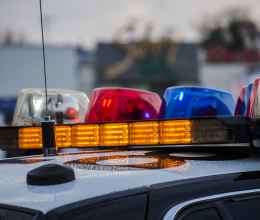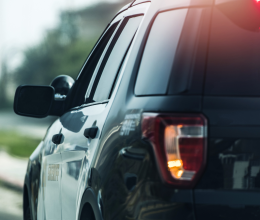An editorial in Sunday's Boston Globe renewed the call for implementation of Boston's body-worn camera program, urging elected officials to "demand immediate action." The editorial comes nearly one year after the Boston Police Department first announced their voluntary body camera pilot, which is now set to begin on September 1, 2016. With September just two weeks away, there have yet to be any volunteers.
But the continuous delays reflect a troubling lack of respect for transparency from those on the thin blue line and shows an equally troubling lack of leadership from the elected officials who oversee it. Resistance to police-worn cameras will not age well — especially when phone-wielding citizens are taking the documentation of police conduct into their own hands.
Police departments in Chicago, Houston, Philadelphia, and New York City have already implemented police camera programs. The devices lead to improved documentation of evidence, and they increase accountability and transparency, according to extensive research.
Body-worn cameras are a crucial community policing tool that offer additional protections on both sides of the badge. This technology has the potential to build trust between law enforcement and historically targeted communities, promoting a culture of cooperation over violence.
As city councilor Tito Jackson rightly put it at the hearing: “Every city in America is one incident away from being a hashtag city.”
Why take that chance?
Left to their own devices, police aren’t going to get it done in a timely manner, as evidenced by how the process has unfolded the past 12 months.
To continue reading "Make police body cams happen in Boston," please click here.
Photo by Chase Elliott Clark.





